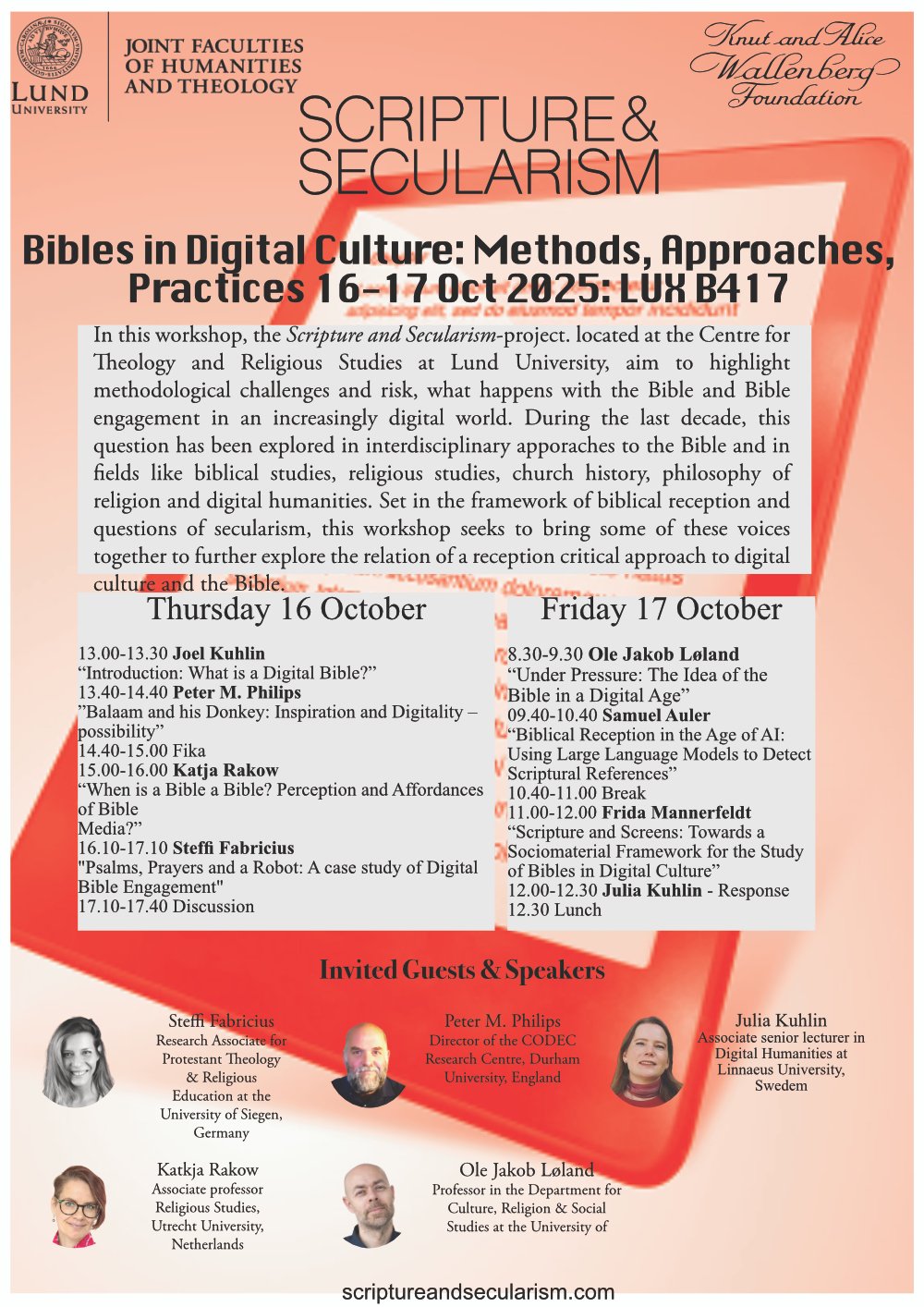Bibles in Digital Culture: Methods, Approaches, Practices
Bibles in Digital Culture: Methods, Approaches, Practices
As a part of the research project, Scripture & secularism: mapping the impact of the Bible on conceptualizations of Europe,, developments in religious studies and digital humanity have become a central element in ongoing investigations on uses of the Bible in contemporary society. In the workshop “Bibles in Digital Culture: Methods, Approaches, Practices”, we ask what happens with the Bible and Bible engagement in an increasingly digital world and which methodological challenges and risks this process poses to researchers.
During the last decade, the question on the Bible’s role in digital culture has been explored in fields like Biblical studies, digital religion, digital theology, religious studies, church history, and philosophy of religion.
Set in the framework of the Scripture and Secularism research project, this workshop seeks to bring some of these voices together to further explore the relation between biblical reception and digital culture, and questions such as:
• What is ‘the Bible’? What characterizes the types of Bibles that emerge in digital spaces? How is ‘the Bibleness’ of the Bible affected?
• How do people engage with Bibles in public, digital spaces, such as social media or large language models (AI), in a digital culture? How are Bibles used, framed, and interpreted? How do power dynamics play out? For example, do biblical interpreters remain in filter bubbles of their own interpretive communities or do they interact with other traditions and practices? How do people react to various engagements with and notions on scripture? Which biblical texts, readings, and interpretative strategies dominate, and which are challenged?
• Could digital culture be characterized as secular?
• And what about the presence and absence of the Bible in public political discourse in a digital culture?
• How do Bible(s) and power intersect in digital culture?
• How do we study biblical reception in a digital culture? What methodological and theoretical needs and possibilities are there?
In a time when Bible readers and Bible consumers are located in various digital spaces, for instance social media, this workshop aims to investigate what effects this has on biblical reception.
Information on schedule and speakers coming soon.

